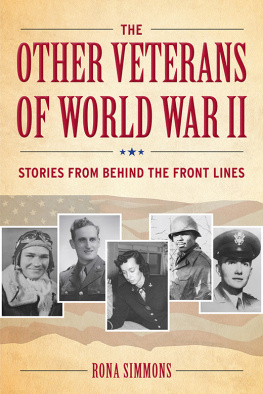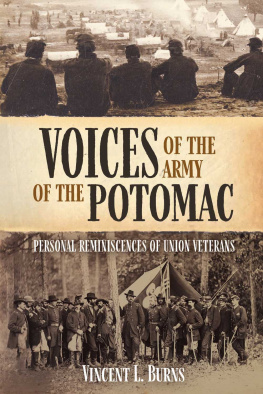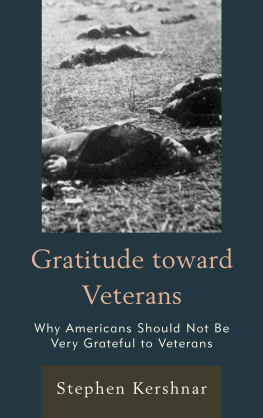FIRST IN: THE AIRBORNE PATHFINDERS
A History of the 21st Independent Parachute Company, 1942-1946
First published as First In! Parachute Pathfinder Company in 1979 by B.T. Batsford Ltd., London.
This edition published in 2015 by Frontline Books,
an imprint of Pen & Sword Books Ltd
47 Church Street, Barnsley, S. Yorkshire, S70 2AS
Copyright Ron Kent, 1979
The right of Ron Kent to be identified as the author of this work has been asserted by him in accordance with the Copyright, Designs and Patents Act 1988.
ISBN: 978-1-84832-946-1
PDF ISBN: 978-1-84832-949-2
EPUB ISBN: 978-1-84832-948-5
PRC ISBN: 978-1-84832-947-8
All rights reserved. No part of this publication may be reproduced, stored in or introduced into a retrieval system, or transmitted, in any form, or by any means (electronic, mechanical, photocopying, recording or otherwise) without the prior written permission of the publisher. Any person who does any unauthorized act in relation to this publication may be liable to criminal prosecution and civil claims for damages.
CIP data records for this title are available from the British Library
Printed and bound by CPI Group (UK) Ltd, Croydon, CR0 4YY
Typeset in 11 / 14 point Palatino
For more information on our books, please email:
,
write to us at the above address, or visit:
www.frontline-books.com
CONTENTS
To the memory of John Lander and Boy Wilson, all those who lost their lives or limbs in the service of the Company, and to all who served with it.
FOREWORD
A s the Chairman of The XXI Independent Parachute Company Club, I am honoured to have been asked to contribute to the new edition of Ron Kents history of the original Pathfinders.
The XXI Company led the British airborne forces into action in the Second World War, marking out the drop zones for the troops who were to follow. It was an elite unit that still exists today within the Air Assault Brigade of the British Army, and remains always ready for rapid deployment to wherever needed. The selection, training and assimilation into the Company is still as recognisable now as it was at the beginning in 1942, as the current Pathfinders of 2015 can testify.
As a child, many of their names, faces, wives and dependents, were familiar to me as a kind of extended family. Wherever we went, whether a posting abroad or a social event at home, someone would meet up with my late father, Joe Smith, who was one of the early graduates from the 23rd Parachute course at Ringway airfield in September 1942, to renew their kinship. This was the experience of many and led to the Clubs formation in 1975. Today the Club, depleted by time of so many wonderful friends, now acts to support the veterans, their families and the generations that have succeeded them. The Club aims to keep the memories alive; to revisit friends in the South of France and Arnhem; to be a contact point for information, and to support the continuation of detailed historical research and indeed enjoy those times of shared comradeship.
In Holland there is a memorial to the XXI Company in the form of a metal ploughshare coming from the grass on the front lawn of the Villa Quatrebas at the famous Crossroads in Oosterbeek. Each year on the Friday morning of the Arnhem weekend we meet for a short service of Remembrance; concluding with The Kohima Epitaph:
When you go home, tell them of us and say, for your tomorrow, we gave our today.
History is important as it is only through a knowledge of the past can we understand the present, and it is the personal stories and tales that bring the past to life and give it the perspective of that moment in time. First In! was the first published account of the XXI Independent Company and has itself led the way in stimulating interest and enthusiasm for this small, but important part of history. Thirty-five years later the new edition of Ron Kents account should help to educate and inform academics, scholars and anyone with an enquiring mind to this complex and enduring story of individual and collective courage during a war that ended in Europe seventy years ago but which still shapes all our lives.
I want to say thank you to all the men of the XXI Company. They are not forgotten and they remain always in our thoughts, remembered with gratitude for their contribution to the peace that has followed.
Jean Howard
Chairman, XXI Independent Parachute Company Club
April 2015
INTRODUCTION
T he 21st Independent Parachute Company was a unique body of men founded in 1942 by Major John Lander TD, whose brainchild it was.
Assisted by Captain B.A. Wilson MC and Lieutenant R.E. Spivey and with the blessing of Lieutenant General Frederick Browning, commander of the 1st British Airborne Division, John Lander started recruiting the 180 men who was to be the Companys normal war strength from very humble barracks in the peacetime garrison of Larkhill on Salisbury Plain.
The Company had a life span of only four years; from 1942 until 1946. In that short space of time members of the Company saw active service in Algeria, Tunisia, Sicily, Italy, the South of France, Holland, Norway, Greece and Palestine. A regular Cooks tour as one of them likes to describe it, although that venerable travel agency would hardly have recommended the mode of transport and the accommodation which the Company was obliged to adopt.
The Company was unique in that no other airborne forces (enemy or Allied) had anything like it. The Germans, first in the field in the use of airborne forces, certainly had no equivalent to John Landers pathfinders. Successful though the small-scale attacks of the Germans on selected targets in the Low Countries and Scandinavia were in May 1940, the large-scale airborne attack on Crete in May 1941 would have benefited by a Pathfinder Force such as John Lander had in mind.
Fresh from their recent successful operation in Greece, which secured the Corinth Canal, German parachute and glider-borne troops descended on Crete on 20 May 1941 with the full support of the Luftwaffe. They sustained fearful casualties even before landing and although the campaign was successfully concluded in a mere ten days, Crete became the graveyard of German parachutists according to their commander, General Kurt Student. Afterwards, Hitler told him The day of the paratrooper is over. For the British, it was only beginning.
The success of German airborne operations in May 1940 so impressed Winston Churchill that, on 22 June 1940, he instructed General Ismay, then head of the Military Wing of the War Cabinet Secretariat, to set in motion the formation of a corps of at least five thousand parachute troops.
It took the British a considerable time to get this concept under way. Unlike the Germans, the British had made no preparations for the training of parachute troops, though there was a nucleus of enthusiastic glider pilots (amateur weekend sportsmen) entirely unconnected with the Army. Many of these, John Lander among them, came to the fore when the word went out from the War Office that an airborne force was to be formed.
Still, in 1940 Britain was only slowly recovering from the loss of men, arms, ammunition and equipment in France and Belgium. There was a shortage of aircraft and a certain understandable reluctance on the part of the RAF to accord the infant Army Air Corps any sort of priority. The most it felt able to do was to make available a few obsolete Whitley bombers and a handful of experienced parachute instructors.
Nevertheless, a small force of British parachutists carried out an attack on an aqueduct in southern Italy on 10 February 1941. All who took part were either killed or captured.









![Louis Hicks - The Civilian Lives of U.S. Veterans: Issues and Identities [2 volumes]](/uploads/posts/book/133676/thumbs/louis-hicks-the-civilian-lives-of-u-s-veterans.jpg)
